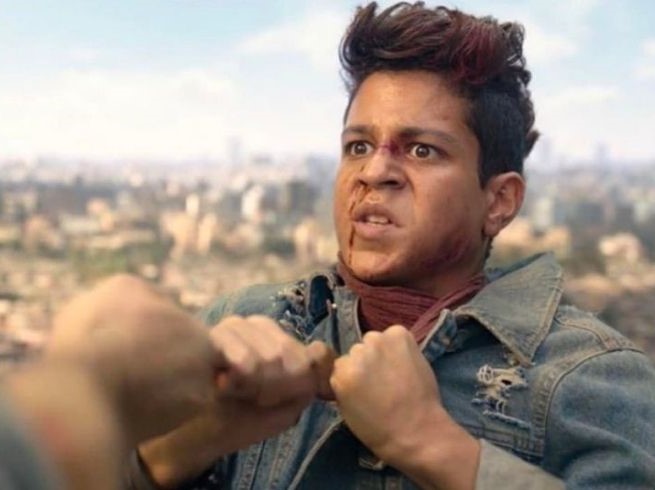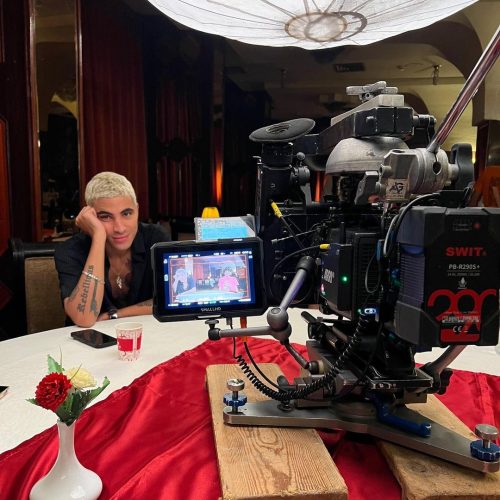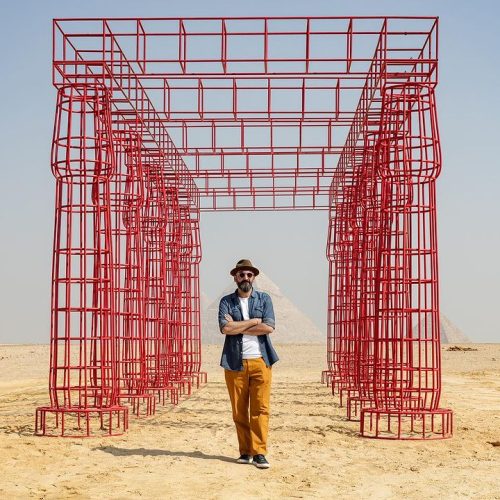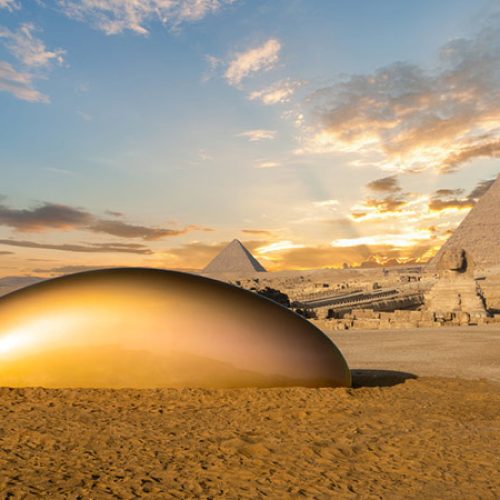If you’ve not seen Moon Knight, at this point, we’re not too sure what you’ve been doing. Whether it’s cool to see the Marvel universe a little closer to home, the graphics or the plotline tackling dissociative identity disorder, which is a condition in which an individual’s personality and sense of self are fragmented as a result of severe psychological stress; everyone has a different takeaway from the Disney+ series.
And with that as a base level, it seems as if the Mohamed Diab-directed series had a rich enough subject matter in order to make Moon Knight palatable. And entertaining as it was, I couldn’t help to shake the familiar feeling of Hollywood stereotypes when it comes to movies or series depicting Egypt on the silver screen.
My qualm with Moon Knight isn’t its script or its mise-en-scène, it wasn’t the woeful CGI in the car chase scene in episode one, nor with the weird British accent. However, it’s with the unspoken fetishization of ancient Egypt directed towards a western audience. In Diab’s defense, Marvel’s original comic is heavily based on Egyptian mythology, but we digress.
The series starts with Steven Grant, a stereotypically eccentric yet unkempt tour guide in the British Museum, who is seen in the opening episode of Moon Knight sharing his enthusiasm for ancient Egyptian culture with an unsuspecting young guest, breaking down their ancient beliefs into simple “facts.” This is the kind of foreshadowing that one would expect to see from any Marvel inspired series. But this where things take a turn for the worst when in the second episode our multifaceted character is in Egypt.
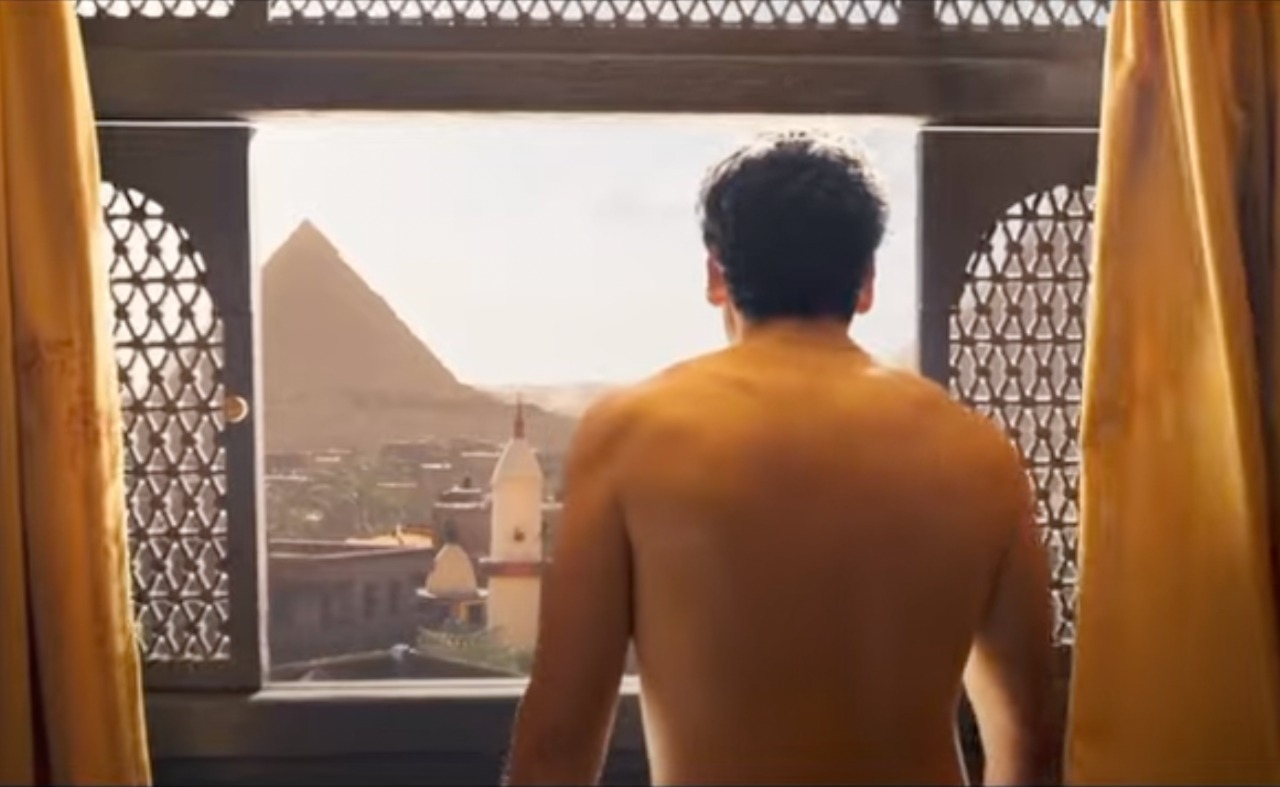
As any Egyptian will tell you, these tropes have been used and overused by Hollywood countless times, to the point where it’s almost laughable — the guyliner, the blatant aversion of shoes (slippers only please), or perhaps the fact that whenever a movie or series mentions Om El Donia, there will be in some way a relation to its ancient past. But there’s a reason behind the perpetuation of these cliches that are still prevalent on the screen today.
The fetishization of Egypt’s ancient past is by no means a new thing, we have seen it multiple times throughout cinema history; take for example The Mummy, not only perpetuating the idea that Egypt’s ancient tombs are cursed or have evil spirits inside of them (trust us, they really don’t), but also the hero of this tale isn’t an Egyptian nor someone from the region, it’s a square-jawed white colonial by the name of Brandon Frazier.
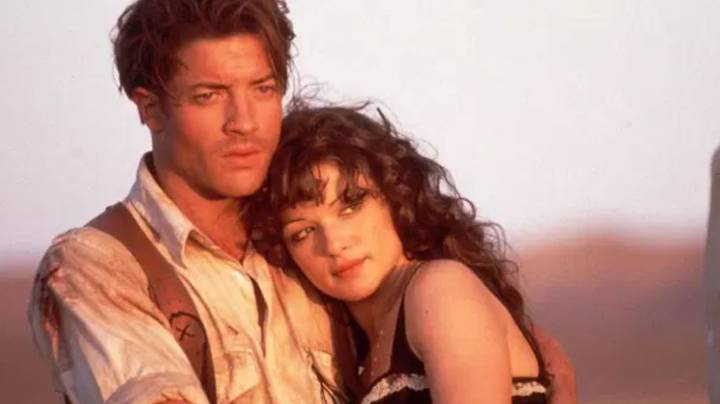
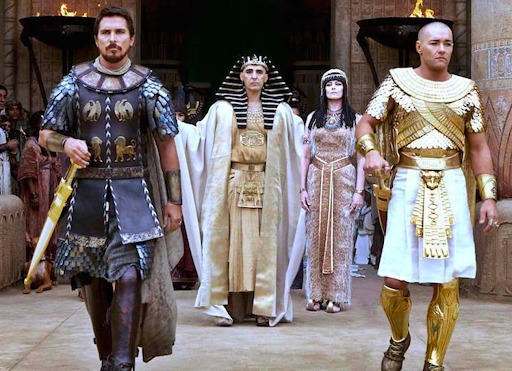
Most of the ideas that western countries had about external cultures came from limited public knowledge and mostly bad foreign journalism. The reason why these tropes still exist today is because the western audience “likes” the trope. This doesn’t sit well with me. We live in a modern time, we live in a time where if you really want to check out what’s going on in Egypt, it’s nothing more than a short Google search or a flight ticket away. Basically it’s time to put down the fantasy and pick up some Edward Said.
I do believe that Diab, tried his hardest not to fall into more blatant use of the cliches in his series, as the Egyptian director has been outspoken against such, stating in previous interviews of the depiction of Egyptians, “usually we’re seen through this orientalist look, which sees us as exotic people. Women are submissive, men are bad.” There’s also the issue of how the country is often “shot in a way that makes it too exotic,” he said.
But when the movie is shot in Budapest and produced by Disney, there is only so much sway that one can have in reducing these archetypes.
The redeeming factor for me really is the soundtrack, more specifically the tracks during the credits at the end of each episode. I never imagined I would hear mahraganat in a Disney+ series, so I was pleasantly surprised when at the end of episode two I was greeted by the familiar beat, and driving bass drops of Ahmed Saad’s El Melouk featuring 3neba and Double Zuksh.
Stepping away from my, probably unhealthy, obsession with Shaabi, we find ourselves listening to the score of the series itself, created by none other than Hesham Nazih. The Egyptian composer boasts over 20 years of experience within the industry, scoring movies like Blue Elephant (Elfil Elazraq) and the music composition of the Pharaoh’s Golden Parade ceremony.
Nazih infuses Moon Knight with a unique flavor, somewhat off the beaten track from the usual Marvel format. In addition to Egyptian artists, the soundtrack also features composers, past and present, from the Arab world, including Algerian crooner Warda, whose Batwanas Beek appears in the third episode. Meanwhile, in episode four, Lebanese icon Sabah’s Saat Saat served as the background track as the main protagonists drove through the desert.
My final gem track from this soundtrack is the below DJ KABOO hit from his Arab Trap releases. It gives me the unwanted desire to raise the gun hand high and hunt down my ops, hypothetically of course. You might also catch Habibi Funk spinning this when his set gets a little more bass heavy.
For me, there’s a clear disconnect between my sonic and visual experience from Moon Knight. I think it’s obvious that my passions lie a lot more with the sounds of the series, rather than the sights. Call me an audiophile, but I’m moved much more by music than I am by visual stimuli; especially when I see Egyptian tropes in series that really shouldn’t have them. Hollywood, we love you, but please leave the region’s depictions to us!





